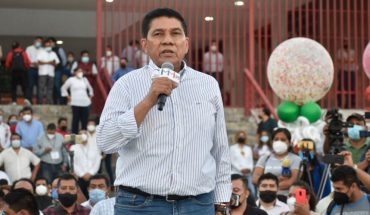Tunisian President Kais Said today urged citizens to vote in favor of his constitutional project in the referendum on July 25 and whose text has been criticized by the heads of the national consultative body – created a month earlier to draft the draft – for its authoritarian drift.
“Say yes to prevent the disintegration of the state and realize the goals of the revolution. There will be no more misery, terrorism, famine, injustice and pain,” the president defended in a three-page letter addressed to the nation, in which he insisted that “history will not go back.”
He also stressed the “need” for a new Magna Carta – to replace the one of 2014, suspended since September – after the political class of the last decade enacted laws “that served personal interests and did not respond to the popular demands of the 2011 revolution that ended the dictatorship of Zin El Abidine Ben Ali.”
“Those who try to conspire by saying that the constitutional project prepares the return to tyranny have not bothered to read all the articles and laws,” Said replied to his detractors.
Two days earlier, the president of the consultative body, the jurist Sadok Belaid, denounced in another letter that the draft, delivered on June 20, was modified in its entirety, which could “open the doors to a dictatorial regime.”
According to the final text, published in the Official State Gazette, the legislative power will be composed of the Parliament and a new chamber called the National Regional and Territorial Council, both with very limited prerogatives. In addition, it grants the power to appoint judges and introduces an article to decree a state of emergency without any of the other powers being able to question this decision.
Experts believe that, if the new Constitution is approved, it would introduce a “super-presidential” system in which the head of state will accumulate executive powers without restrictions or controls that guarantee the separation of powers in a Rule of Law.
The consultation coincides with the first anniversary of the exceptional measures of Said, who arrogated full powers to “preserve social peace” and announced a roadmap that includes legislative elections on December 17, in which single-member lists will replace political parties.
Follow us on





